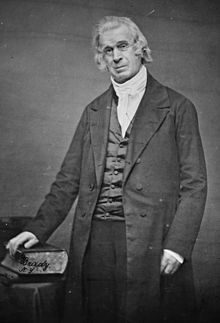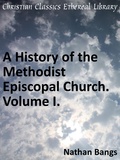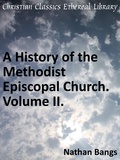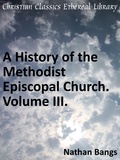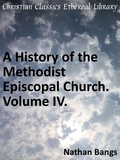Nathan Bangs
American Methodist theologian
Biography
Born in Stratford, Connecticut, Bangs received a limited education, taught school, and in 1799 went to Upper Canada in search of work as either a teacher or a land-surveyor. He was converted to Methodism in 1800 and worked for eight years as an itinerant preacher in the wilderness of the Canadian provinces serving communities in the areas of Kingston, York, London, Niagara, and Montreal.
Bangs was the principal founder and secretary of the Methodist missionary society. When appointed secretary of the missionary society in 1836, he devoted his chief energies to its service, until appointed president of the Wesleyan University, at Middletown, Connecticut, in 1841. Surprisingly, that proved to be a disappointment to everyone and in 1842 Bangs resumed pastoral work in New York, and in 1852 retired and employed himself during his remaining years chiefly in literary labors. Although his career was an illustrious one, Bangs's reputation suffered badly when he failed to support Methodist abolitionists at the General Conference of 1844. Abel Stevens published a lengthy biography of Bangs one year after his death in 1862.
Bangs defended Arminianism against the Calvinism of his day. He was a strong believer of prevenient grace but not at the expense of total depravity. He argued that because of grace, humankind does have the ability to respond to God. He also opposed the anti-nomianism practiced by some rival members of the New Light Baptist community.
His most important work was a History of the Methodist Episcopal Church from its Origin in 1776 to the General Conference of 1840 (4 vols., New York, 1839-'42).
